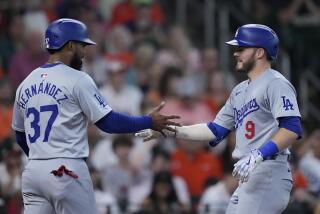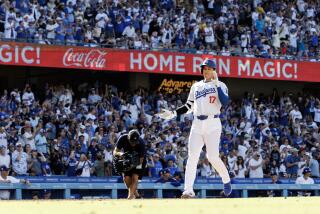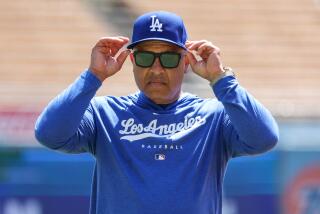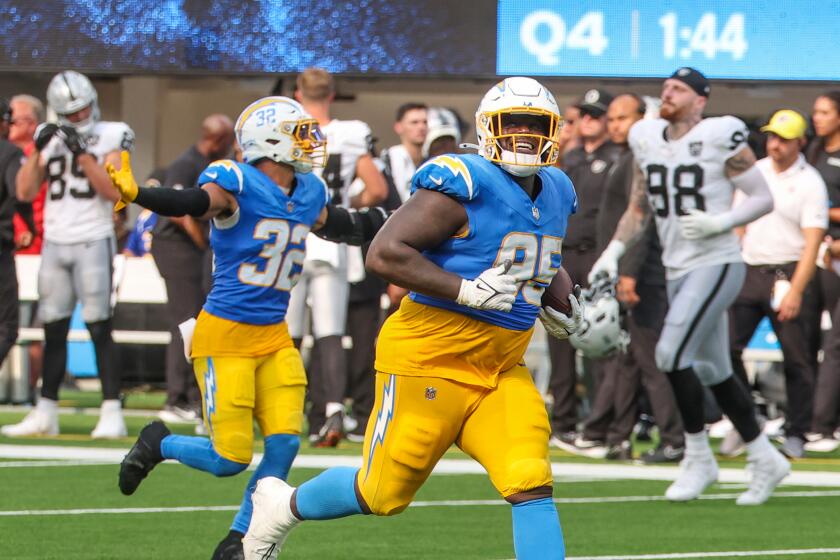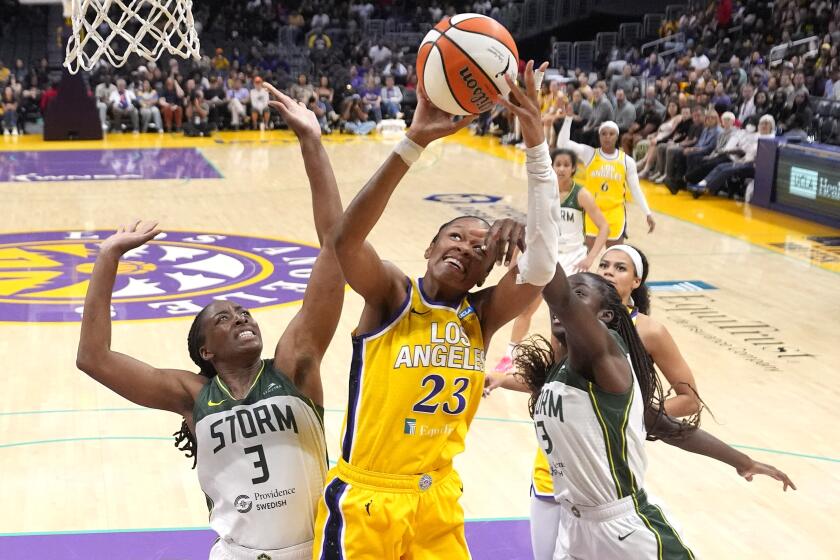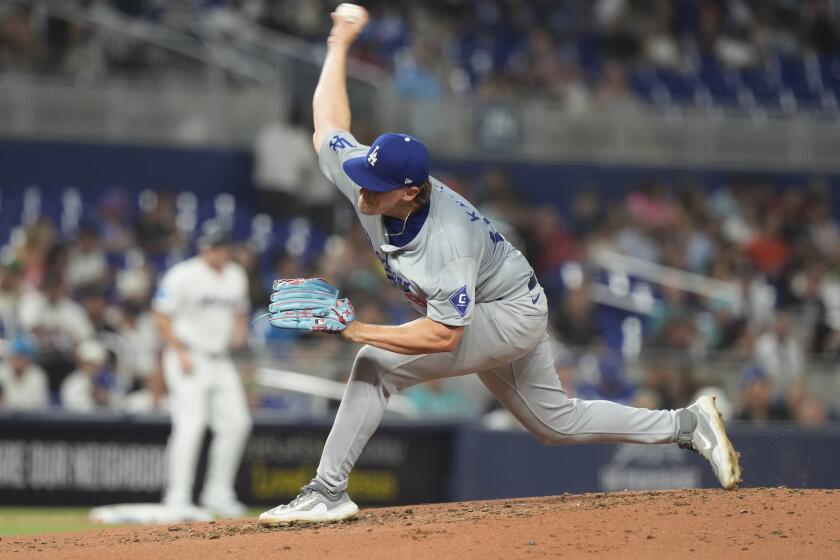By remaining with Dodgers, Hiroki Kuroda stayed true to himself
When Hiroki Kuroda told the Dodgers last week that he would not waive the no-trade clause in his contract to facilitate a trade to a World Series contender, General Manager Ned Colletti said he thought the decision was based on how comfortable the Japanese right-hander felt in Los Angeles.
Manager Don Mattingly offered a similar opinion, explaining how a player who does not speak English could be hesitant to make a midseason move.
Something was lost in translation.
Kuroda said his decision was based on a previous decision, which was to re-sign with the Dodgers over the winter. That decision, in turn, was based on one before that, which was to sign with the Dodgers before the 2008 season.
From then on, he said his goal was to win a World Series with the Dodgers. And even if that goal is becoming increasingly remote with each passing day, he said he can’t get himself to change course.
“I wanted that feeling to remain important to me,” Kuroda said. “I think your self-identity is defined by certain decisions you make. If you go back on them, you lose a sense of who you are.”
Kuroda said he heard that Larry Bowa, the Dodgers’ former third base coach, said on MLB Network that any player who refused to be traded from a noncontender to a contender should have his mental makeup questioned. (Bowa said in a telephone interview Thursday that his comments were directed at U.S.-born players, adding that he is aware Kuroda has different values.)
Kuroda said he agrees that an athlete’s ultimate goal should be to win, and he understands how Americans might interpret his decision to stay with the Dodgers as an indication that baseball isn’t his top priority. But he said that if anything, he made the decision because of how important baseball is to him. He said he feared that he could change as a person if he changed the course of his baseball career.
He was a late bloomer who rarely played for his high school team and entered pro baseball in Japan with a reputation for being wild. By remaining on the path he took as a teenager, he developed into a control pitcher.
“That’s why I’m the person I am today,” he said.
Kuroda’s fear of how something small could have negative repercussions on a larger scale — in this case, how waiving a no-trade clause could alter his character — is a particularly Japanese concept, according to Kyodo News baseball reporter Takashi Yamakawa.
Japanese society frowns upon politicians and television advertisers attacking competitors, Yamakawa said, for fear that it could lead to the lowering of the standards of discourse. Beanball wars aren’t as much a part of the baseball culture because of fears that it could escalate violence.
The fan who fell to his death trying to catch a baseball at Rangers Ballpark in Texas last month wouldn’t have died in a Japanese ballpark, Yamakawa said.
“The railings are so high that fans can’t hand anything directly to players to get autographed,” he said. “Everything is thought out beforehand. All of the negative possibilities are eliminated.
“In America, you have more freedom to do as you please. That’s why so many Japanese people like it here. But sometimes that freedom can get you into trouble.”
Of course, Kuroda signed up to play baseball in the United States.
Shouldn’t he conform to the cultural norms of this country?
Kuroda said he did, to a point.
He let the Dodgers change his throwing program. He accepted the idea of a pitch count, which is nonexistent in Japan. He threw at Philadelphia Phillies outfielder Shane Victorino in the 2008 postseason, even though the concept of a retaliatory pitch was foreign to him.
But he said he couldn’t alter his fundamental thought process.
“That’s almost something you’re born into,” he said. “That was something that was passed down to me by my parents. I had to hold on to that. If you change something like that, you’re no longer you.”
Still, Kuroda conceded he was concerned that American fans would misinterpret his refusal to leave the Dodgers as a sign of professional indifference. So when he took the mound in San Diego on Tuesday, he said, “I felt I absolutely had to win.”
He did, pitching seven scoreless innings.
But there was more misunderstanding.
Mattingly said Kuroda looked particularly relaxed and guessed that the passing of the trade deadline had a calming effect on him. Told that was anything but the case, Mattingly laughed.
“Tell him not to be relaxed again,” Mattingly said.
twitter.com/dylanohernandez
More to Read
Go beyond the scoreboard
Get the latest on L.A.'s teams in the daily Sports Report newsletter.
You may occasionally receive promotional content from the Los Angeles Times.
